Best Countries to Teach English
in Asia
Demand for Teachers is a Huge Factor in Job Satisfaction
by Michael G. Hines

|
|
A garden in Shanghai, China.
|
In addition to sharing vast areas of
the world's largest continent, quite a number of nations
in Asia are also sharing another striking similarity: most
are continuing to experience an acute demand for English
teachers. From South Korea to Vietnam, Asian countries remain
very highly motivated towards getting their population to
learn the lingua franca of globalization. In fact,
learning English is required by law in several Asian countries
such that English is now being taught as early as the primary
grades in many Asian cities.
According to many recent reports coming
from worldwide ESL training organizations, database job
posting websites and forums, and important reports by
actual teachers out in the field, Asian countries offer
some of the Top ESL opportunities worldwide for native
English speakers who are qualified to teach English as a
second or foreign language. Given that English has become
a mandatory subject in grade schools in many Asian cities,
many native speakers of English have flocked to teaching
institutions to learn the basics required for teaching a
foreign language. The aim of many prospective, and even
experienced teachers, is to travel to and temporarily live
in key Asian destinations in order to teach different levels
of English. For many of these native speakers, teaching
English in exotic Asian locations is not only a financially
rewarding career move but also an opportunity to experience
fascinating and varied cultural environments with very long
histories. English teachers often take into account the
advantages of living and traveling in Asian countries as
motivations behind making location and career moves. In
fact, many ESL teachers still have not left their adopted
country, provided long-term visas and work permit renewals
are possible.
Asian countries vary in their adopted
strategies concerning English learning, however. Furthermore,
Asians across the region radically differ in how receptive
they are to learning English. These two factors, plus the
varying levels of economic development and industrial sophistication
among Asian countries make the process of choosing the country
in which to teach English a bit tricky. The following are
tips that should provide prospective English teachers some
idea regarding what we consider some of best Asian locations
to ply their trade, based upon cultural, economic, or other
factors. Nevertheless, we strongly advise visiting a country where
you might consider teaching for as long a period as possible
in order to be sure that the match and way of life is best
for you.
|
China
Long on the road to becoming
the next economic powerhouse, China cannot open
its doors fast enough to English teachers with
the goal of equipping their next generation of
entrepreneurs, diplomats, scientists, engineers,
artists, and businessmen to better engage the global
community. In addition, the growing number
of middle class families are willing to spend on
private language lessons for their kids. However,
China's labor market is yet to become lucrative
for the employed even when its national economy
is slowly exceeding that of the U.S. So salaries
for English teachers still tend to be lower compared
to other countries such as South Korea and Japan.
Taiwan generally
offers much more lucrative benefits and is almost
comparable to South Korea in that regard. On the
plus side, getting immersed in the culture and
language of the world's next most powerful economy
can have potentially rewarding advantages in the
long run. Common requirements for securing a work
permit in Taiwan include a college diploma, and
relevant health documents including HIV test results
and chest X-rays.
See our section on Teaching English in China for employers and articles.
|
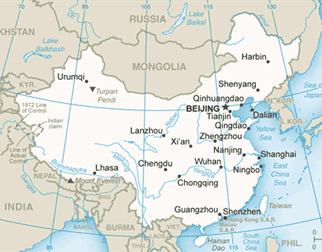
|
|
|
|
South Korea
South Korea is among the best
places in the world to teach English. Culturally
rich and economically advanced, South Korea is
among the most technologically innovative nations
as ranked by many research organizations. Korea
is also vibrantly cosmopolitan with thriving entertainment
and tourism industries. Given the decades-long
U.S. military presence in the country, English
has been an entrenched language in the northeast
Asia peninsula. Native English speakers who
are also qualified as teachers are in high demand
in South Korea. Even native speakers who have very
little training or no teaching experience can travel
to Korea and help meet the demand for private English
tutors. Reportedly, more than 60% of the available
English teaching jobs are for teaching the basics
of written and conversational English to Korean
children and adolescents. A typical employment
arrangement of this type includes a monthly salary
of US$1,500, airfare, accommodations, holiday benefits,
and bonuses upon contract completion. Generally,
a work visa, a college degree, and certification
from an accredited TEFL organization are required.
See our section on Teaching English in South Korea for employers and articles.
|
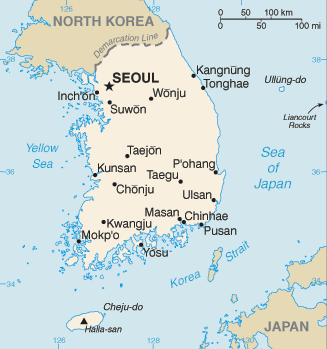
|
|
|
|
Thailand
Thailand has one of the most
robust tourism industries in the region, making
the country a melting pot of different cultures.
Compared to Malaysia, Singapore, and the Philippines,
however, Thailand's average English proficiency
is very low. Still, the country and its population
recognize the need to learn the lingua franca of
globalization, making the demand for English teachers
on the uptrend. In addition to Bangkok, several
other Thai cities such as Hat Yai and beautiful
Chiang Mai has been experiencing a healthy demand
for English teachers. Unlike in Bangkok, competition
is less steep in these areas. Most native speakers
of English, especially those with college degrees
and English teaching certifications are certain
to find a favorable employment in Thailand. Given
the huge demand, even those less qualified can
find good job offers, though you are always safer
with a certificate of some kind.
See our section on Teaching English in Thailand for employers and articles.
|
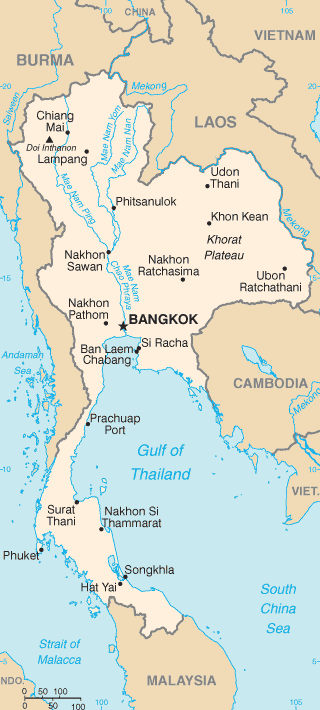
|
|
|
|
Japan
Given the postwar relationship
between Japan and the U.S., English is well-respected
by the Japanese. The demand for qualified
English teachers still attracts many native speakers
to set up residence in this culturally rich nation.
However, the prolonged economic recession diverted
domestic funds that were formerly allocated for
English learning to more basic necessities. As
a result, fewer English language schools are currently
operating compared to their number a decade ago.
This makes the top English jobs very competitive,
and only the most qualified practitioners of TESL/TEFL
usually get a position. Down the line, however,
there are still vacancies with acceptable benefits.
The cost of getting the job, however, can become
prohibitive as costs-of-living in Tokyo and several
other Japanese cities are some of the highest in
the world. Yet schools and companies are some of
the best employers. Native speakers who dream of
teaching in Japan can also try out the Japan Exchange
and Teaching (JET) Program.
See our section on Teaching English in Japan for employers and articles.
|
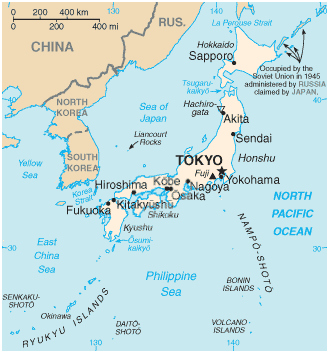
|
|
|
|
Vietnam
Since its open door policy
(doi moi) was institutionalized in
the mid 1980's, Vietnam has
been in the process of transforming its economy
into one of the most promising in the region.
Its society has also regained its former vibrancy
such that the country's welcoming people now
ranks with its natural beauty and cultural heritage
as the key attractions that draw in millions
of tourists annually. In 2019 alone, disclosed
tourism receipts reached US$12 billion and growth
is only expected to continue. Many factors,
including the steady influx of tourists and
the globalization of its industries have necessitated
the need for qualified English teachers in the
country. In fact, English is now considered
as the second language with a deeper and more
practical influence than did French has historically.
Today, proficiency in English is increasingly
becoming a critical requirement for employment
in many of the country's business sectors. Given
this demand, English teaching in Vietnam provides
a huge opportunity for native speakers who,
in turn, can benefit from the rich cultural
immersion the country offers.
|
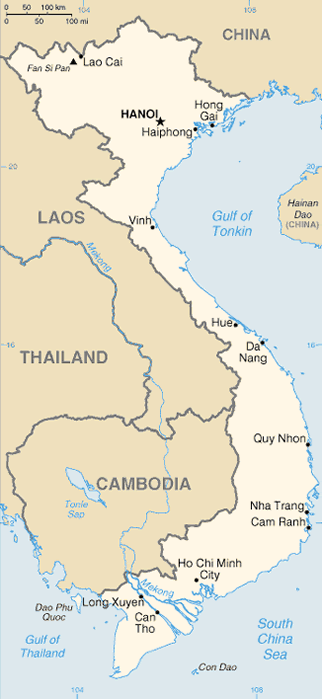
|
|
|
|
Malaysia and Singapore
Malaysia and
its close neighbor, Singapore,
are probably the top active users of English
in the region, based upon average scores on online
tests conducted by language-learning organizations.
Both have also experienced periods of British rule
such that English has a secure place within both
countries' communication infrastructure. Malaysia
now implements a balanced language policy between
Malay and English, such that educators are encouraged
to use media and the internet as tools for teaching
English. One ad for an English teacher in Malaysia
highlights a hefty package of US$2,000 a month,
including accommodations, food, and other in-country
support. Many Malaysian locations are great for
would-be language teachers who appreciate a laid-back,
unhurried, and nature-inspired lifestyle.
|
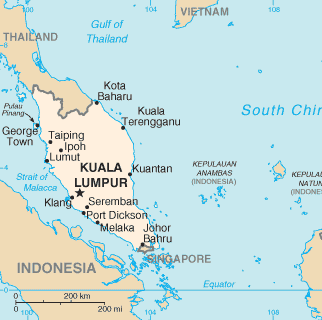
|
It is worth noting that Cambodia and
Laos are becoming more attractive as teaching destinations,
so you should research and visit these countries as well.
Who knows which other countries may soon become
great places to teach English in this rapidly
developing economic region?
One thing we do know: Asia is clearly emerging as the world's economic and demographic center for this century. With English now entrenched as the language of globalization, the demand for English teachers in Asia can only parallel the continent's phenomenal economic growth. For those interested in teaching in Asia as a way of living and immersing themselves in a variety new cultures, the many and varied countries offer enough in the way of cultural and historical attractions to justify a move for those reasons alone.
Michael G. Hines is
an educator living in Thailand.
|
